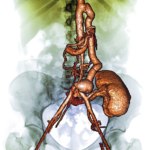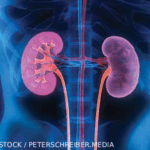As it becomes increasingly difficult for private practice physicians to remain independent & physicians are burning out, Shawn Baca, MD, FACR, is working tirelessly to change healthcare policy.

Subcategories:EthicsLegal UpdatesLegislation & AdvocacyResearch Rheum
The ACR/CHEST ILD Guidelines in Practice, a video
In collaboration with the American College of Chest Physicians, the ACR released two new comprehensive guidelines aimed at improving the screening, monitoring, and treatment of patients with interstitial lung disease (ILD) secondary to systemic autoimmune rheumatic diseases (SARDs). Recently, Sindhu R. Johnson, MD, PhD, professor of medicine at the University of Toronto, Canada, director of the Toronto Scleroderma Program and principal investigator for the guideline, and Elana J. Bernstein, MD, MSc, Florence Irving associate professor of medicine in the Division of Rheumatology at Columbia University, New York City, and co-first author, presented a webinar to talk about how the guidelines were developed and present some of the recommendations and their rationale: Watch the recording now!

As it becomes increasingly difficult for private practice physicians to remain independent & physicians are burning out, Shawn Baca, MD, FACR, is working tirelessly to change healthcare policy.

Because back pain is a chronic condition for many patients, rheumatologists should increase their understanding of the common problems of the lumbar spine.

Katie Robinson |
A study identifies ultrasound as a safe, accessible & cost-effective alternative for longitudinal aortic surveillance in patients with GCA.

Katie Robinson |
A small study shows baricitinib effectively treats refractory Takayasu arteritis & allows for glucocorticoid reduction with no serious adverse events recorded.

Jeffrey Curtis, MD, MS, MPH |
This synopsis of research into rheumatoid arthritis highlights key areas presented at ACR Convergence 2025, including strategies to delay or prevent RA, emerging mechanisms of action in RA treatment, and the growing role of AI in advancing RA research and clinical care.

A recently published study shows that inflammatory disease begins well before synovitis is seen on exam; a better understanding of what’s brewing before the storm could lead to the development of preventive therapies for RA.

Deborah Levenson |
The recently released PREDMETH study results indicate that methotrexate can be considered a real alternative to prednisone for patients with pulmonary sarcoidosis.

VEXAS is a recently identified rare genetic disorder associated with somatic mutations in the UBA1 gene. Given the variability in disease presentation & the limited number of studies to date, an international multidisciplinary panel of VEXAS experts was convened to provide guidance to healthcare providers on the condition’s management. We spoke to experts on the panel about the resulting guidance document.

Mithu Maheswaranathan, MD |
A rheumatologist & lupus expert reviews lupus nephritis treatment, questioning proteinuria cutoffs & ACR guidelines, advocating for newer therapies & end-of-treatment biopsies.

Shivani Garg, MD, PhD |
New data: HCQ reduces risk of eGFR decline by 61–73% & slows kidney function loss. Early initiation is critical for renal health in lupus nephritis.